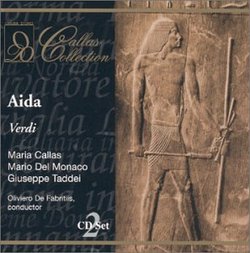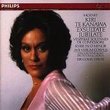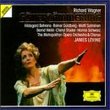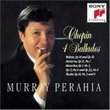| All Artists: Giuseppe Verdi, Oliviero de Fabritiis, Carlos Sagarminaga, Giuseppe Taddei, Maria Callas, Mario del Monaco, Oralia Dominguez, Roberto Silva Title: Verdi: Aida Members Wishing: 0 Total Copies: 0 Label: Opera D'oro Original Release Date: 1/1/1951 Re-Release Date: 6/20/2000 Genre: Classical Styles: Opera & Classical Vocal, Historical Periods, Modern, 20th, & 21st Century Number of Discs: 2 SwapaCD Credits: 2 UPC: 723723828026 |
Search - Giuseppe Verdi, Oliviero de Fabritiis, Carlos Sagarminaga :: Verdi: Aida
 | Giuseppe Verdi, Oliviero de Fabritiis, Carlos Sagarminaga Verdi: Aida Genre: Classical
|
Larger Image |
CD DetailsSimilarly Requested CDs |
CD ReviewsWhat a show THIS is! lesismore26 | Chicago, Illinois USA | 06/14/2000 (5 out of 5 stars) "This spectacular performance of "Aida", a live performance from Mexico City on July 3, 195l, has been in circulation on pirate discs (and even earlier on LP) for years, but it has never sounded as clean and clear as it does on this new Opera D'Oro release. The sound has been cleaned up to a point where it sounds almost as good as a studio monophonic recording dubbed in the early 1950's. This performance has gained legendary status because it is the only performance of "Aida" where the Triumphal Scene in act III is brought to a circus-like conclusion by Maria Callas' interpolation of a top E flat. The note itself is a stunner, and the fact that she sustains the note for a good length of time (in those days Callas had top E flats to burn!) shows what great vocal health she was enjoying at the time. Of course, Callas was at the beginning of her vocal prime here and she certainly sounds it. Her voice is much larger and darker than it was to be when she undertook the studio recording of "Aida" for EMI four years later. Her musical phrasing is exemplary, and she creates a truly tragic heroine, if not a particularly vulnerable one. Still, this is an outstanding example of Callas' early work during those still talked-about seasons in Mexico City. Her colleagues in this performance are certainly in her league. The veteran Mexican mezzo soprano Oralia Dominguez, shamefully under utilized in the recording studio, is a passionate and highly emotional Amneris. The Aida/Amneris interview scene here is like a confrontation between the Maine and the Merrimac, with both Callas and Dominguez at full throttle. Dominguez' best work is, not unexpectedly, in the last act, where she ignites all sorts of explosions. True, some of her effects may be a bit overdone, but they are certainly exciting ------ and she gives Callas a real run for her money (and that could not have been easy!). Mario del Monaco is a stentorian and warrior-like Rhadames, with a voice in it's greatest period. Subtle he never was, and he certainly lacked sensitivity ----- but has there been a tenor since to equal him in this typeof a role (excepting posssibly Corelli?) Giuseppe Taddei is a solid and reliable Amonasro, his work being especially good in the father/daughter scene with Callas in the Nile Scene. Olviero De Fabritiis conducts with power and persuasion, and never allows the music to stagnate. Should this be your only recorded "Aida"? Of course not, but given a performance this good, with singers of this caliber, and with listenable and acceptable sound ----- and at a great bargain price, how can you go wrong? A great show and a wonderful way to spend two and a half hours." A Searing AIDA William T. Clegg | Pocatello, Idaho United States | 12/11/2000 (4 out of 5 stars) "How lucky the Mexican opera-going public was in 1951! This Aida is an excitingly sung, well-conducted performance that stands well next to any produced in a recording studio. In fact, when compared to the Aida recorded in 1952 by London/Decca with Tebaldi and delMonaco, the sound on this reocrding, taken from a radio broadcast, is actually better in some respects. Take the triumphal scene in Act 2, for example. On London/Decca, the orchestra and singers sound like they're in a small box, the brass sounds tinny and completely drowns out the strings. That's not the case with this Aida. Although the sound isn't as full as a stereo recording, it has more bloom and space around it, the brass and stings are in their proper balance, and it coveys the sense of being in a large hall, not a padded room. The one real blemish on this version is the synthesized overture. Apparently the producers of this issuing decided to augment what was actually recorded. It would have been better for them to have left it alone.Regarding the singers themselves, they come close to comprising a dream cast. Callas is a fiery, tormented Aida, her singing is beautifully secure, and contrary to the opinions of some critics, her 'O patria mia' is well sung, complete with a ringing high C. Oralia Dominguez was making her debut as Amneris with this performance and it's a wonder that she didn't become an international star in the same ranks as Simionatao or Bumbry. She's every bit as strong, both vocally and dramatically and certainly deserved more recognition than she got. DelMonaco is his usual thrilling, brutish self, rarely making Radames more than two-dimensional, but there really wasn't anyone better than he at the time. Taddei's blustering and bellowing sounds appropriate here as Aida's father, and as his voice is in better condition than for most of his studio recordings, he's totally enoyable and convincing. The rest of the cast is more provincial, but most opera houses these days would kill for a supporting cast like that.How fortunate that this performance was preserved! It's not only a valuable document of what Callas could really do with this role, but it's legitimately great theatre and great art all around." Bigger than life! Elliana | 01/23/2004 (5 out of 5 stars) "This Aida ist exciting, beautiful, gorgeous and definite! Callas' E-flat stunt is a MIRACLE plus her being in EXCELLENT voice makes this the DEFINITE Aida. Enjoy a Callas in TOP-form! Only Leontyne Price sang an Aida that moved me like this!A++++++++++++++++"
|

 Track Listings (9) - Disc #1
Track Listings (9) - Disc #1








